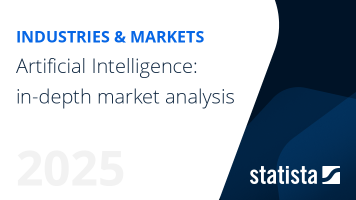Language translation NLP - Nigeria
Nigeria- The market size in the Language translation NLP market is projected to reach US$46.60m in 2025.
- The market size is expected to show an annual growth rate (CAGR 2025-2031) of 23.04%, resulting in a market volume of US$161.70m by 2031.
- In global comparison, the largest market size will be United States (US$2.89bn in 2025).
Definition:
The Language Translation Natural Language Processing (NLP) market covers/encompasses applications that convey the meaning/content of a text from one language into another language and includes systems that can understand the nuances of different languages and accurately translate them into other languages. The Language Translation NLP market has relevance for the areas of e-commerce, travel and tourism, and international business.
Additional Information:
The market comprises two key performance indicators: market sizes and market sizes by industry. Market sizes are generated by the funding amount of Computer Vision companies. Key players of the market include companies such as Google Cloud Translation, Amazon Translate, and DeepL.
For more information on the data displayed, use the info button right next to the boxes.
- Translation software tools that can provide immediate translations for businesses
- Speech translation tools that can provide translations of speeches in real time (e.g., at conferences)
- Personal communication tools that can provide translations for individuals.
- Literary translation tools (e.g., for books) and legal translation tools (e.g., for contracts).








